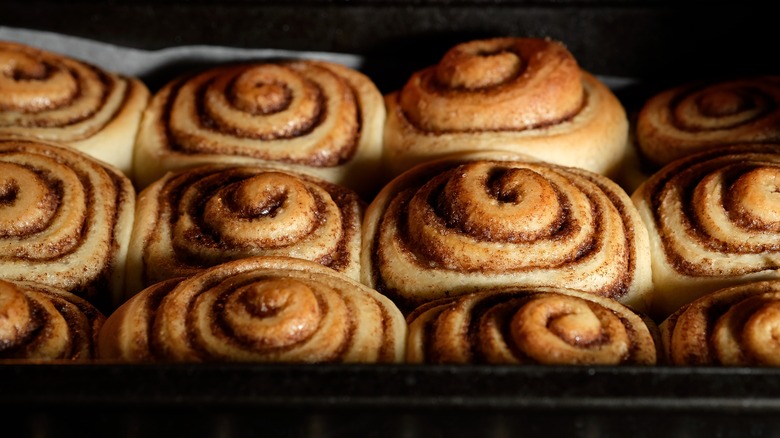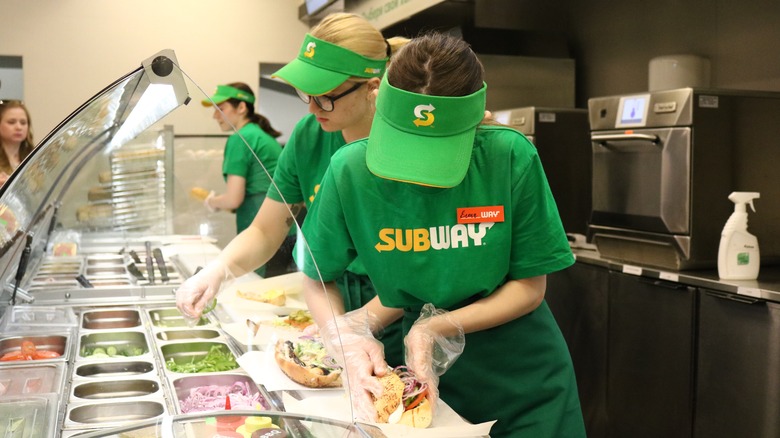Smells Have A Larger Influence At Chain Restaurants Than You Think
We all know that smell is intrinsically linked to taste, which is why a stuffy nose might make your chicken soup taste bland and why the scent of seasonings will give you a pretty good idea of how they'll flavor your food. But did you know that smell is also a subtly significant element of your consumption experience, and that chain restaurants might very well use it to influence your brand loyalty and spending psychology?
Take Subway, for example. One of the world's leading chain restaurants, the sandwich store is particularly well-known for its signature scent, which Vice determined in 2020 to be the result of the combined baking aromas of the chain's bread and cookies. Even Subway skeptics may find themselves susceptible to the enticing scent wafting from one of the chain's many outposts. Other chains, like Cinnabon and Auntie Anne's Pretzels, rely on smell as a major pillar of their stores' marketing strategy, attracting hungry mall-goers or airport travelers through the power of aggressive olfactory expression (and strategically placed ovens). As a Cinnabon franchisee told the Wall Street Journal in 2014, "Aroma is who we are. It is our greatest asset."
The goal of so-called 'scent marketing' is not only to attract foot traffic to chain restaurants but to establish a psychological link between certain scents and brands themselves, which supposedly encourages continued customer loyalty. Some food retailers also hope that scent will influence customers to spend more time shopping, thereby motivating them to spend more money.
Science backs up the powerful psychology of scent
Though there isn't definitive evidence to prove that yummy smells directly boost sales, some studies suggest a link between pleasant, soothing scents and customers' increased motivation to spend. A 2012 joint study between researchers at Washington State University and the University of St. Gallen in Switzerland found that customers shopping in the presence of a "simple" smell, rather than a complex one or no smell at all, spent about 20 percent more on average.
More conclusive than the potential of smell to influence customer behavior is its ability to recall specific memories, especially those with an emotional impact. According to neurobiologists at Harvard Medical School, olfactory sensors in the brain send powerful signals to "key areas of the brain involved in learning, emotion, and memory," most significantly the hippocampus, which can recognize when a smell is connected to a strong emotion and store that information "indefinitely." This is the key link that chain restaurant proprietors are counting on to ensure an association between their product and feelings of craving and nostalgia.
Because chain restaurants are all about consistency and reliability, their smells are often replicable across locations, making it easier for them to invoke an instant emotional response. Much like replacing cashier interaction with digital kiosks for checkout, utilizing scent marketing is just one more way these restaurants hope to encourage customer retention and higher spending.

